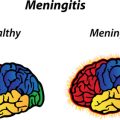Introduction: The Importance of Cognitive Rehabilitation
Cognitive rehabilitation, once considered a niche intervention within neurological and brain injury circles, is now gaining traction as an essential component of holistic mental health care. At its core, cognitive rehabilitation involves structured therapeutic activities designed to improve cognitive functions such as memory, attention, problem-solving, and executive function. Its roots lie in helping those affected by conditions like stroke or traumatic brain injury regain independence, but the field is rapidly expanding. In today’s UK context—where the NHS faces immense pressure to innovate and deliver personalised mental health services—integrating cognitive rehabilitation into mainstream mental health care is both timely and necessary.
Across Britain, there is a growing awareness that mental health challenges often go hand-in-hand with cognitive difficulties. For example, individuals living with depression or schizophrenia may struggle with concentration or decision-making just as much as they do with mood or motivation. Cognitive rehabilitation offers practical strategies to address these everyday impairments, ultimately supporting recovery and improving quality of life. As the NHS continues to evolve its approach to mental health, bridging the gap between traditional psychological therapies and cognitive rehabilitation could be a game changer for patients and clinicians alike.
2. The Current Landscape of NHS Mental Health Services
The NHS stands as the backbone of mental health support across the UK, serving millions with a blend of compassion and clinical expertise. Understanding how cognitive rehabilitation can fit into this complex system requires a practical look at what’s currently available, what works well, and where gaps persist.
Key Strengths of NHS Mental Health Services
- Comprehensive Access: The NHS offers a wide range of services, from primary care through GPs to specialist community teams and crisis intervention.
- Evidence-Based Practice: Treatments are guided by NICE guidelines, ensuring interventions are grounded in robust research and best practice.
- No Direct Cost: Care is free at the point of use, removing financial barriers for most patients.
Ongoing Challenges Facing the System
- Long Waiting Times: High demand often leads to delays for assessments or therapies, particularly for talking treatments and specialist interventions.
- Resource Limitations: Staffing shortages and funding constraints can impact consistency and availability of care, especially outside major cities.
- Variation in Service Quality: Differences in local commissioning mean patient experience can be something of a postcode lottery.
The Typical Patient Journey Through NHS Mental Health Services
| Stage | Description | Common Barriers |
|---|---|---|
| Initial Contact | Usually starts with a visit to the GP who assesses symptoms and refers to appropriate services if needed. | Lack of awareness, stigma, appointment wait times. |
| Assessment | Mental health professionals carry out detailed evaluations to determine needs and risks. | Waiting lists, limited assessment slots. |
| Treatment Planning | A personalised care plan is developed—this might include medication, therapy, or community support. | Availability of chosen treatments, patient engagement challenges. |
| Intervention | Cognitive-behavioural therapy (CBT), counselling, medication management, or group work are commonly offered. | Treatment delays, drop-out due to accessibility or perceived effectiveness. |
| Review & Discharge | Care plans are reviewed regularly; patients may be discharged back to GP care once stable. | Lack of follow-up support, risk of relapse without ongoing input. |
The Opportunity for Cognitive Rehabilitation Integration
This landscape sets the stage for exploring how cognitive rehabilitation could bridge persistent gaps—especially for those whose recovery plateaus despite standard interventions. By understanding these strengths and challenges first-hand, we can more realistically envision solutions that fit within the fabric of British healthcare rather than sitting on its fringes.

3. Recognising the Gaps: Where Cognitive Rehabilitation Fits In
The NHS has long been a cornerstone of British healthcare, offering a wide range of mental health services from crisis intervention to ongoing psychological therapies. Yet, despite these comprehensive efforts, there remains a significant group of individuals whose needs are not fully addressed by existing pathways. These are often people living with cognitive difficulties following brain injury, stroke, or as part of conditions such as schizophrenia and depression. Traditional mental health interventions—such as talking therapies and medication—can help manage symptoms, but they rarely focus directly on the everyday cognitive challenges that undermine confidence, independence, and quality of life.
This is where cognitive rehabilitation comes into its own. Unlike standard treatments, cognitive rehabilitation zeroes in on practical issues like memory lapses, attention deficits, or impaired problem-solving skills that can persist even when emotional symptoms are well-managed. For many service users within the NHS system, these cognitive gaps are the stumbling blocks to returning to work, sustaining relationships, or even just managing daily routines. While psychological support is crucial for recovery, it doesn’t always equip people with strategies to overcome these specific functional obstacles.
What’s more, the gap is not just clinical—it’s also cultural. Within the UK, there can be a tendency to downplay “hidden” disabilities such as cognitive impairment, especially when compared to more visible physical health issues. This means people struggling with brain fog or forgetfulness can feel misunderstood or unsupported by mainstream services. Cognitive rehabilitation steps into this space by offering tailored interventions—often designed collaboratively with the individual—that directly target their unique difficulties. The result? Service users report greater self-efficacy and a renewed sense of agency over their recovery journey.
To put it simply, cognitive rehabilitation doesn’t replace existing NHS mental health services; it complements them. By bridging this critical gap, it adds value for both clinicians and patients—enhancing outcomes not only in terms of symptom management but also in enabling real-world participation and inclusion. As we look towards a more holistic model of care within the NHS, recognising and integrating cognitive rehabilitation is key to meeting unmet needs and truly supporting individuals on their path back to fuller lives.
4. Barriers to Integration: Cultural and Systemic Hurdles
When we talk about integrating cognitive rehabilitation into NHS mental health services, it’s essential to face up to the very real barriers—many of which I’ve encountered first-hand during my time working in various Trusts across the UK. These hurdles are not just logistical; they run deep into the structural, educational, and attitudinal fabric of our healthcare system.
Structural Barriers
The NHS is a vast, complex organisation with layers of management, established protocols, and tight budget constraints. While there’s genuine enthusiasm for innovation, the sheer bureaucracy can stifle progress. For example, securing funding for pilot programmes in cognitive rehab often feels like running a marathon just to reach the starting line. Even when evidence supports its effectiveness, cognitive rehabilitation can be seen as a ‘nice-to-have’ rather than an essential intervention.
| Barrier Type | Real-World Example | Impact |
|---|---|---|
| Funding Allocation | Lack of ring-fenced budgets for cognitive rehab projects | Pilot projects stall or never launch |
| Service Silos | Mental health and neurological services rarely communicate | Disjointed care pathways for patients with both needs |
| Workforce Shortages | Not enough trained staff in cognitive rehabilitation approaches | Long waiting lists and patchy provision |
Educational Challenges
A significant barrier is simply knowledge—or lack thereof. Many clinicians in mental health settings have limited training in cognitive rehabilitation techniques. In my experience, staff are incredibly passionate about helping service users but are sometimes unaware of what cognitive rehab actually involves or how it could fit into their practice. Training opportunities exist but are often optional extras rather than core curriculum elements.
A Personal Reflection from Within the NHS
I remember facilitating a workshop on cognitive strategies for a community mental health team in Manchester. The initial reaction was scepticism: “Isn’t this more for stroke patients?” one nurse asked. By the end of the session, however, several team members were excited about applying these tools with their clients experiencing psychosis or depression. It highlighted that education really does shift attitudes—but only if space and time are carved out to deliver it.
Attitudinal and Cultural Hurdles
Cultural resistance remains a stubborn challenge. There’s a longstanding belief within some areas of British mental health care that psychological therapies should take centre stage, leaving less room for practical interventions like cognitive rehabilitation. Additionally, some professionals worry about stepping outside their traditional roles or question whether such approaches are “evidence-based enough” for mainstream NHS adoption.
Towards Change: Honest Conversations Needed
If we’re serious about bridging this gap, we need open dialogue across disciplines—breaking down silos between occupational therapists, psychologists, psychiatrists and support workers. True integration will only happen when cognitive rehabilitation is no longer seen as ‘someone else’s job’ but as a shared responsibility woven into everyday practice. As someone who’s navigated both hope and frustration within the NHS, I believe change is possible—but only through honesty about these barriers and collective commitment to overcoming them.
5. Best Practices: Case Studies from Across the UK
Across the United Kingdom, several pioneering initiatives have demonstrated how cognitive rehabilitation can be effectively embedded within NHS mental health services. These case studies not only highlight the practical aspects of integration but also reflect on the lessons learnt and transferable strategies that other trusts and clinicians might adopt.
Leeds Memory Service: Collaborative Care Pathways
The Leeds Memory Service has successfully piloted a joint approach, bringing together clinical psychologists, occupational therapists, and NHS mental health practitioners to deliver structured cognitive rehabilitation programmes for individuals living with early-stage dementia. By working closely with families and carers, the team developed personalised care plans that blend cognitive training with psychosocial support. Key learnings from this project included the importance of regular multidisciplinary meetings, which allowed for ongoing adaptation of interventions based on patient progress and feedback.
Bristol’s Early Intervention in Psychosis Team: Digital Tools in Action
In Bristol, the Early Intervention in Psychosis (EIP) team integrated digital cognitive remediation tools within their routine care pathways. Through partnership with local universities, they trained staff on evidence-based digital platforms designed to target memory, attention, and executive function. Patients reported improved confidence in daily activities, while clinicians noted enhanced engagement and measurable improvements in cognitive assessments. The EIP team emphasised that staff buy-in and robust IT support were crucial for the success of this initiative.
Lambeth Living Well Network Alliance: Community-Led Solutions
The Lambeth Living Well Network Alliance in South London has adopted a community-led model, embedding cognitive rehabilitation groups within local hubs alongside traditional NHS mental health services. This approach has enabled service users to access support close to home, reducing barriers linked to stigma or travel. Peer facilitators—trained individuals with lived experience—play a key role in delivering sessions and fostering a sense of shared purpose. Lessons learnt here include the value of co-production and the need for flexible delivery models that accommodate diverse needs.
Common Threads Across Projects
Reflecting on these examples, several best practices emerge: clear communication between agencies, involvement of service users and carers from the outset, and ongoing evaluation to fine-tune interventions. By sharing successes—and learning openly from challenges—NHS teams across the UK are steadily closing the gap between innovative cognitive rehabilitation research and everyday mental health practice.
6. Moving Forward: Recommendations and Opportunities
The journey to truly integrate cognitive rehabilitation into the British NHS mental health services is not just a policy challenge—it’s a lived reality for clinicians, policymakers, and service users alike. Drawing from hands-on experience and observing best practice across the UK, it’s clear that real progress will require both bold action and grassroots collaboration.
Actionable Steps for Clinicians
1. Champion Multidisciplinary Collaboration: Clinicians should proactively build bridges with occupational therapists, psychologists, and peer support workers. Regular joint case reviews and shared training sessions can foster a culture where cognitive rehabilitation is seen as integral, not ancillary, to mental health care.
2. Embed Personalised Goal Setting: Move beyond generic interventions. Involve service users in setting meaningful goals—this boosts engagement and makes cognitive strategies more relevant to everyday life.
3. Measure What Matters: Use outcome measures that reflect real-world change (e.g., ability to return to work or study), rather than just symptom checklists.
Strategic Recommendations for Policymakers
1. Prioritise Funding for Integrated Programmes: Ringfence budgets specifically for pilot projects that blend cognitive rehab with mainstream mental health pathways. Track what works and scale up successful models.
2. Update Commissioning Guidelines: Ensure local NHS trusts have clear incentives—and accountability—for offering evidence-based cognitive rehabilitation as part of their standard offer.
3. Support Workforce Development: Invest in training front-line staff in cognitive remediation techniques, using e-learning modules tailored to the UK context.
Empowering Service Users
1. Co-Production as Standard Practice: Service users should be invited to co-design interventions and feedback mechanisms; their lived experience is invaluable in shaping practical, stigma-free support.
2. Advocacy and Peer Networks: Encourage participation in peer-led groups—these can provide informal mentorship and help break down barriers to access.
3. Demand Transparency: Push for clearer information on what cognitive rehabilitation is available locally; this enables informed choices.
The Road Ahead: Building on Real-World Trials
Pilots across England have shown that when teams are given time, resources, and flexibility, integration flourishes—especially where leadership champions innovation from the ground up. Yet, scaling these successes requires persistence: sharing learning openly, adapting to local needs (from rural Cornwall to urban Manchester), and never losing sight of the individual stories behind every statistic.
A Personal Reflection
I’ve witnessed first-hand how small changes—a single team adopting cognitive rehab tools or a service user feeling heard—can ripple outwards. The gap between aspiration and reality may be wide, but every step counts. By seizing opportunities for collaboration, listening deeply, and daring to innovate within the unique tapestry of the NHS, we can bridge this gap—together.


